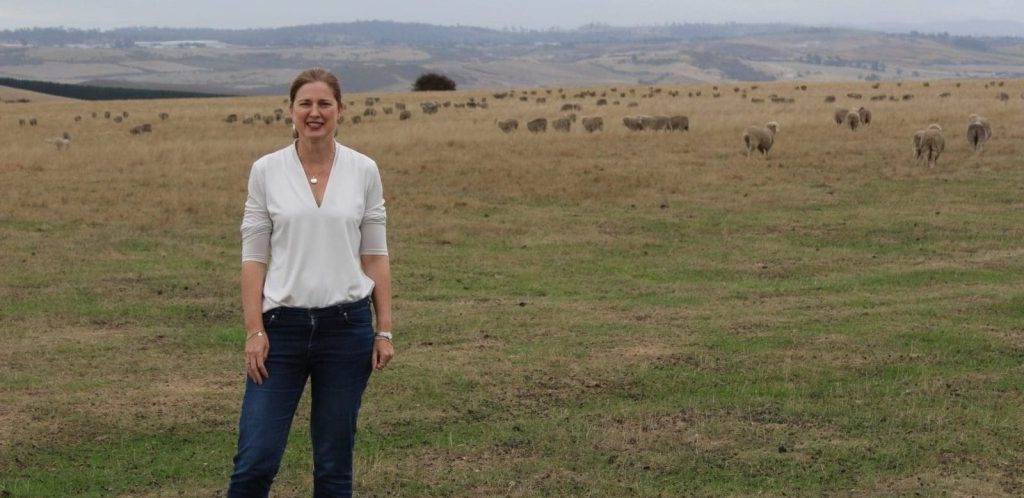
Minister for Agriculture, Fisheries and Forestry Julie Collins is looking for a live sheep export transition advocate or a small advisory group.
THE Albanese Labor Government appears to have taken on board an industry suggestion to share the transition advocacy role for the phaseout of live sheep exports by seas.
The Minister for Agriculture Fisheries and Forestry Julie Collins government today opened an expression of interest process to recruit an advocate who will assist the transition away from live sheep exports by sea.
The EOI process is open to applications for a single transition advocate or a small advisory group of 2-3 members, with the term of appointment to run until 30 June 2029. It follows efforts by the government to get industry bodies to nominate a suitable transition advocate.
SPA proposed that the taskforce comprise members who are a trusted presence in the WA sheep industry or associated businesses and communities and who can represent their interests and viewpoints of all stakeholders. Apart from an independent chair, taskforce membership would be drawn from the sheep and processing industries, local grower associations/networks, mental health/social services, banking/financial, trade market access and the WA Government, SPA said. SPA proposed that the Department of Agriculture, Fisheries and Forestry be the taskforce’s secretariat and report on transition progress.
Ms Collins today said the transition advocate will be important in achieving the successful phase out of live sheep exports by sea.
“They will link stakeholders, producers and the supply chain to government, and act as a crucial conduit.
“Transparency, communication and engagement will be important aspects of the Transition Advocate’s role as part of a broader strategy to provide confidence for affected people, business and communities in the sheep supply chain,’ she said.
“We are taking a steady, clear methodical approach to the phase out, ensuring certainty for business while supporting producers and processors to embrace the opportunities of the future.”
The government said the role of transition advocate has been created to support the industry and ensure strong communication between government and industry, in response to a recommendation by an independent panel. As part of the role, the advocate will provide advice and recommendations on how the sheep supply chain is adapting ahead of the end of the trade.
The advocate will also have an advisory role and support further collaboration with sheep producers and supply chain businesses to maintain a coordinated, whole of industry approach. In addition, the transition advocate will identify and communicate to the government on key supply chain issues to promote a resilient industry and a successful phase out, the government said.
In October, the Albanese Labor Government committed a further $32.7 million to the transition support package for the phase out of live sheep exports by sea, increasing the total amount to assist sheep producers and those in the associated supply chains to adapt from $64.6 million to $97.3 million and raising the total overall package for the transition to $139.7 million.
The government said it is also working with the Western Australian Government to deliver key elements of the transition package, including processing capacity grants and community wellbeing support.
SPA chief executive officer Bonnie Skinner today said whatever form the transition advocate takes, it must serve as a meaningful tool for the government to consider the long-term implications of its policy and adapt the transition plan as necessary to achieve the best outcomes for the industry.
“Sheep Producers Australia has advocated to the Federal Government that members of the taskforce should comprise individuals who have a trusted presence within Western Australian agriculture and rural industries and communities.
“They must also be able to understand the interests and viewpoints of all stakeholders,” Ms Skinner said.
“This advocate role, as it is advertised by the government, is focused on communication about the transition, rather than directly supporting farmers and facilitating two-way engagement to ensure the government fulfils its obligation to act in the best interests of both the industry and regional communities when implementing policy.”
For more information on the role and on the transition assistance package, visit www.agriculture.gov.au/transition-advocate

HAVE YOUR SAY